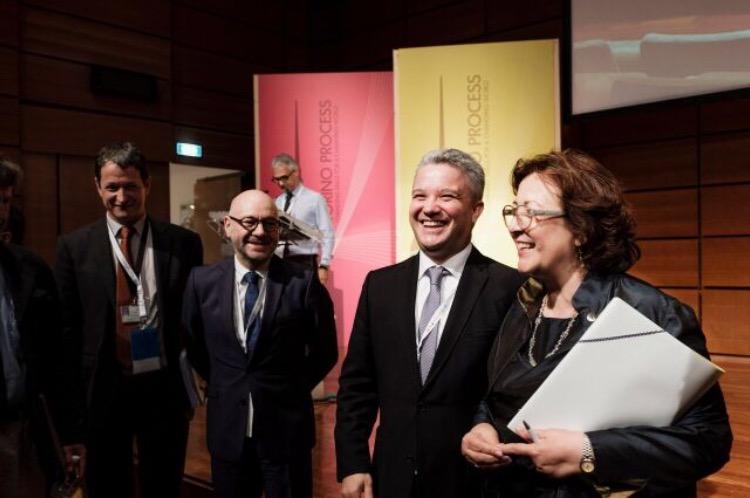
Changing Skills for a Changing World - Torino Process 2017
The closing conference of the fourth round of the Torino Process - the ETF's flagship evidence-based evaluation tool for vocational education and training policy reform - opened June 7 in Turin.
More than 300 delegates from 28 of the ETF's 29 partner countries, representatives of EU and international organisations gathered at a conference venue at the Lingotto building that once housed Fiat's famous modernist factory building.
Built in 1923 - and arguably made world famous when its rooftop testing track featured speeding Minis in the iconic British movie of 1969 starring Michael Caine - the Lingotto now houses cinemas, shops, university facilities and hotels.
It was a fitting venue for a conference looking forward to the key role skills training has to play in addressing the economic and social challenges of a fast changing world.
Opening the conference, Madlen Serban, who is stepping down as head of the ETF, introduced her successor Cesare Onestini, until recently the deputy head of the EU Delegation in Delhi.
Ms Serban underlined the importance of widening the scope of the ETF's work with partner countries to meet and embrace change. "Do we want to make progress in perpetuating in what does not work or to make progress in changing the world?
'The ETF wants to give a purpose not only through work but coming together creating communities,' Ms Serban said.
The evolving nature of the Torino Process - from an analytical tool that, when it launched in 2010, focused on assessing the existing state of VET in partner countries, to a multi-purpose policy lever that is increasingly used to effect change and implement reform - was vividly put into context by contributions from two expert panels during the conference opening afternoon.
Arman Toskanbaev, a 26 year old businessman and entrepreneur from Kazakhstan told a panel on 'Setting the Context' that although he had not benefitted from a Higher Education, by the time he was 17, taking note of inspirational teachers, he already understood that he could teach himself all that he needed to be capable in any field he chose to put his mind to.
Now with ten years' experience in business to his credit, ranging from dealing in computers to high-end watches - and a published author of a book entitled 'From Idea to Business'- Mr Toskanbaev told delegates that education was failing to produce young people with transferable, entrepreneurial skills.
James Calleja, director of the ETF's affiliated organisation CEDEFOP - which works with VET issues within the EU - said that its latest survey showed that large numbers of workers are rarely offered the opportunity to upgrade their skills in the worksplace and much skills training takes place informally, peer-to- peer or through their own efforts.
The need to have a global joined-up thinking and approach to education and training was emphasised by an expert panel that focused on the United Nation's 2030 Agenda for Sustainable Development. Jafar Javan, director of the UN System Staff College, said the 'very ambitious' policy, based on a global survey and supported by all UN member countries, was a 15 year programme that aims to achieve 17 goals including 169 specific targets to eradicate poverty, promote sustainable and inclusive economic growth and tackle.
The Torino Process conference continues June 8 with detailed sessions designed to introduce delegates to the five key concepts upon which the Fifth Round will be centred: Delivery, cooperation, diversification, innovation and the future.
Did you like this article? If you would like to be notified when new content like this is published, subscribe to receive our email alerts.